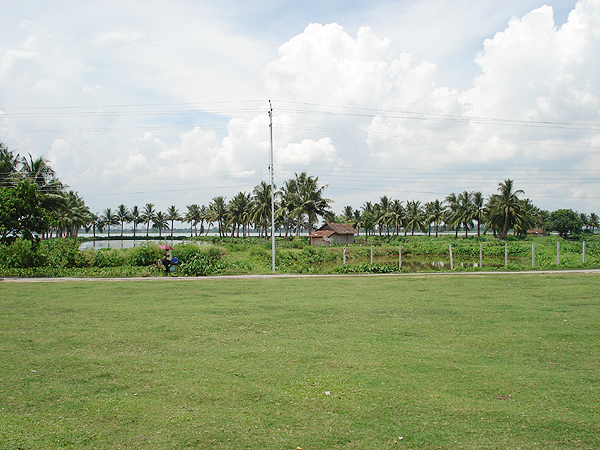The city of Kolkata is blessed to have its very own natural urban wastewater treatment system in the form of the East Kolkata Wetlands. According to the Ramsar Site Information Service, these wetlands are "one of the rare examples of environmental protection and development management where a complex ecological process has been adopted by the local farmers for mastering the resource recovery activities". Because of their international significance, unique ecological character, multifunctional nature and enormous productivity, these wetlands have been designated as Wetland of International Importance and are governed by the East Kolkata Wetlands (Conservation and Management) Act, 2006.
A landmark judgement in 1992
It is often supposed that it was the remarkable verdict given by Justice Umesh Chandra Banerjee in 'PUBLIC v State of West Bengal' on September 24, 1992, which acted as a predecessor to the enactment of this act. The case arose out of a Public Interest Litigation filed by PUBLIC, a Kolkata-based NGO, against the establishment of a commercial centre within the heart of the wetlands. The petitioner pleaded with the court to give directions to the state authorities to protect and conserve the wetlands, which would otherwise be destroyed by reclamation and change in land use.
When the case was finally heard, Justice Banerjee stated that "the Calcutta Wetlands presents a unique ecosystem apart from the materialistic benefit to the society at large” and ruled in favour of maintaining the ecological characteristic of the wetlands and prohibiting any activity likely to damage it. Unfortunately, even after such a historical step was taken by the Judiciary, it was only in 2006 that the Act was notified, nearly 4 years after it became a Ramsar site in 2002.

Powers under the Act
The Act provides for the establishment of the East Kolkata Wetlands Management Authority, which is a statutory body entrusted with the responsibility of conserving and managing the Wetlands. It also provides wide powers and functions for this Authority to conserve, manage and protect this unique ecosystem that spans over an area of 12,500 hectares. This includes the powers to demolish, alter or prevent any illegal activity, which is likely to change the ecological character and adversely affect the wetlands. The Authority can even enforce land use control within the area and in case of any illegal construction may ask the person responsible to restore the land to it’s original status.
Flaws in the law
Despite such wide powers in hand, the Authority has not been successful in eradicating unauthorised developments on the wetlands, evident from news reports that warn people about the future of this peri-urban wetland. Large chunks of land including water bodies which are used for pisciculture by the local residents, have been under constant threat of getting filled up. These fisheries ponds are an important source of livelihood not just for the local people but for the entire city of Kolkata, which depends upon the fish stock coming from these ponds. The city's Metro Line project and the growing urban sprawl on the fringe of these wetlands especially in Rajarhat- New Town area, are examples of such misuse.
Penalties under the Act
The penalty for failure to comply with the provisions laid down in the statue is imprisonment, which may extend to three years or a fine which may extend to Rs. 1 lakh or both. In case of a continued offence, an additional fine of Rs. 5000 per day will be levied but are either of these good enough to deter people from misusing the wetlands?
The Act has been criticized by many as being weak especially given that this unique resource recovery system has saved the city from the humungous cost of setting up a separate water treatment plant. A sum of Rs. 1 lakh in negligible, especially for those in the real estate sector.

If we truly wish to save these wetlands, penalties including fine and imprisonment need to be more severe and must be imposed better. This calls for important amendments to existing laws as well as coordination between various government departments.
Whether it is the East Kolkata Wetlands Management Authority established under the Act or the Kolkata Police or the Local Panchayat, starting from the top most officials to those working at the grassroot levels, the same degree of responsibility is required. It isn't wrong to expect the same from the people of Kolkata as well, to raise their voices and their concerns in order to protect this pristine site which is a lifeline to their city.
Lead image source: Dr. Dhrubajyoti Ghosh













